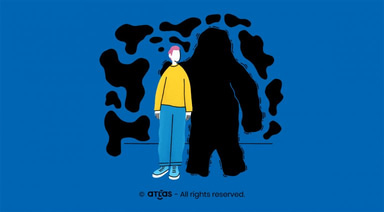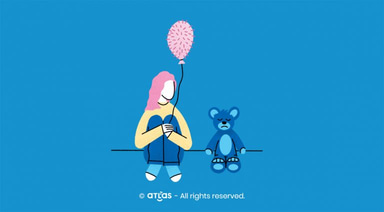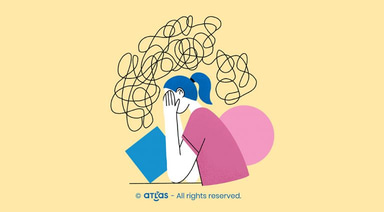“It’s Friday, 22:00, I have no plans to go out in the city, and I already feel the thought – I can’t sleep– it throws me into a sea of anxiety.” Does it sound familiar to you? To us too! And that’s because ATLAS specialists are meeting more and more customers who say:
I can’t sleep! What to do?
Sleep and its role in our life
Sleep is a treasure that we hardly found in our daily and hectic lives. It is a physiological state that takes care to slow down the functions of our human body:
- heart rate,
- respiratory rate,
- muscle activity,
- brain activity,
- high levels of stress.
Why is this slow down process necessary? Nobody knows exactly why, but it has been observed in different cases what happens when the sleep is absent, and the functions mentioned above do not benefit from rest.
The record for the most extended period without sleep, according to Wikipedia, is currently of Randy Gardner, a 17-year-old student (1964). It stayed awake for 11 days and 25 minutes. 11 days!! That is 264.4 hours! What were the effects of this unique scientific project? Here you have it:
- severe changes of behavior,
- hallucinations,
- paranoia,
- blurred vision,
- lack of concentration,
- short-term memory loss.
Sleep deprivation can lead to:
- increased levels of stress,
- hight blood pressure,
- higher appetite,
- weight fluctuations,
- weakening of the immune system,
- increase the risk of myocardial infarction.
The lack of sleep and the fact that more and more people declare: I can’t sleep are no longer trivial problems in the society in which we live. At present, we spend a third of our lives sleeping, and in the first phase, you could say that it is enormous. During that time you could do a lot more things, and statements like “I don’t have time” would not be found so often in our vocabulary.
But what about the I can not sleep statement?
Unfortunately, however, sleep is necessary to recover and to work well even if we are talking about cognitive skills (those that help solve daily tasks/activities, or we are talking about our way of understanding and deciphering the world we are living in.
Having trouble sleeping can shorten life considerably, and a sleepless night or a restless sleep can lead to dramatic consequences in areas such as transportation or medical services. For example, a doctor may be affected by sleep deprivation by making impulsive and dangerous decisions in some cases.
According to UCL (University College London), physicians in 24-hour guards manage to make 36% more serious medical errors and make five times more misdiagnoses than resting doctors. We don’t think you would want to be in operation at such times.
What is left to do? And how can I overcome this “I can’t sleep”?
First and foremost, you need to be aware of what you are doing because you are sleep deprived. Maybe this 2-minute video can help you in this regard, and to realize that you act strange precisely because: “I can’t sleep.
Other things you can do:
- avoid screens of any kind an hour before going to bed
- forget about having meals before bed for at least 2 hours, so that the stomach has time to digest (avoid spicy foods that can contribute to heartburn)
- avoid alcohol, caffeine or nicotine
- exercise regularly
- prevent obesity – a known risk factor for sleep apnea
- limit the time you spend in bed and make yourself a sleep schedule to respect
- if you are depressed or anxious, try to deal with this and do not let things get worse
In the ATLAS community, over 200 licensed specialists are ready to listen to you, whether you are suffering from sleep disorders or depression. Schedule a meeting now.
The ATLAS team, for your wellbeing!
If you don’t know who to talk to, book a free tutorial session with the ATLAS team. You need to find a comfortable alternative to problems that do not give you peace.



